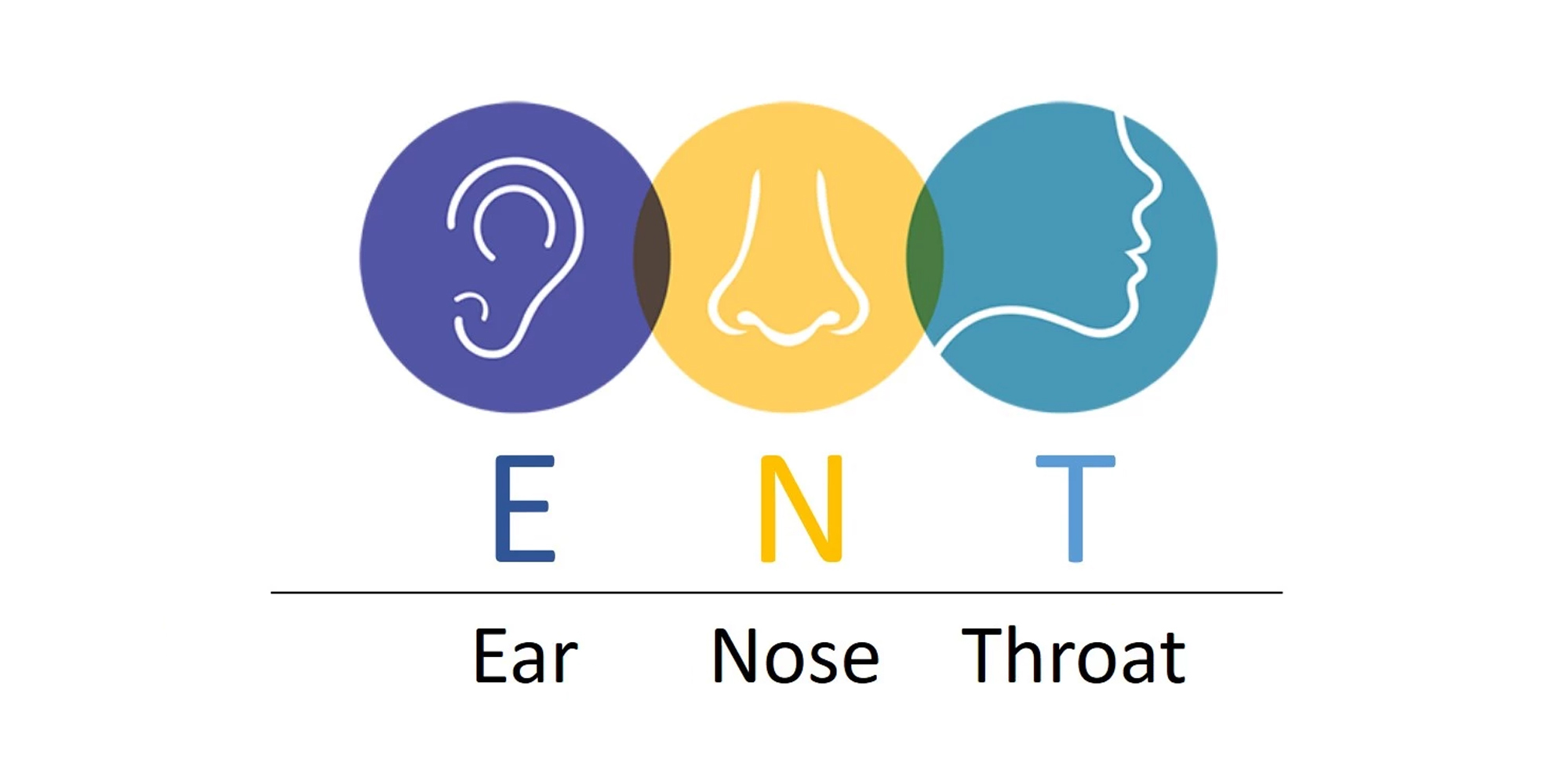
Ear, Nose, Throat
Ear, Nose, and Throat (ENT) medicine, also known as Otolaryngology. is a medical specialty focused on the diagnosis, treatment, and management of conditions affecting the ear, nose, throat, head, and neck. ENT specialists, also called otolaryngologists, are trained to address a wide range of medical and surgical issues related to these areas.
Here's a breakdown of ENT medicine and its key components:
1. Ear Conditions
Hearing Loss: ENT specialists diagnose and manage various causes of hearing loss, including conductive hearing loss (related to problems in the outer or middle ear), sensorineural hearing loss (related to problems in the inner ear or auditory nerve), and mixed hearing loss.
Ear Infections: Otolaryngologists treat acute and chronic ear infections, including otitis media (middle ear infection) and otitis externa (outer ear infection or swimmer's ear), which can cause pain, fluid buildup, and hearing loss.
Tinnitus: ENT specialists evaluate and manage tinnitus, the perception of ringing, buzzing, or other noises in the ears, which can be caused by various factors such as exposure to loud noise, age-related hearing loss, or underlying medical conditions.
Balance Disorders: Otolaryngologists diagnose and treat balance disorders, including vertigo, Meniere's disease, and benign paroxysmal positional vertigo (BPPV), which can cause dizziness, spinning sensations, and imbalance.
2. Nose and Sinus Conditions:
Sinusitis: ENT specialists diagnose and treat sinus infections (sinusitis), inflammation of the sinuses caused by viral, bacterial, or fungal infections, which can result in facial pain, nasal congestion, headache, and nasal discharge.
Nasal Obstruction: Otolaryngologists address nasal obstruction caused by deviated septum, nasal polyps, allergies, turbinate hypertrophy, or other structural abnormalities that can impair breathing and lead to chronic congestion.
Nasal Allergies: ENT specialists manage allergic rhinitis (hay fever) and other nasal allergies, providing treatment options such as antihistamines, nasal corticosteroids, allergy shots (immunotherapy), and environmental modifications.
3. Throat and Voice Disorders:
Throat Infections: Otolaryngologists diagnose and treat various throat infections, including pharyngitis (sore throat), tonsillitis, and laryngitis, which can cause pain, difficulty swallowing, and voice changes.
Voice Disorders: ENT specialists evaluate and manage voice disorders, including hoarseness, vocal cord nodules or polyps, laryngeal papillomas, and spasmodic dysphonja, which can affect vocal quality, pitch, and projection.
Swallowing Disorders: Otolaryngologists assess and treat swallowing disorders (dysphagia) caused by conditions such as gastroesophageal reflux disease (GERD), esophageal strictures, or neurological disorders affecting swallowing function.
4. Head and Neck Conditions:
Head and Neck Cancer: ENT specialists diagnose and treat head and neck cancers, including cancers of the throat, larynx (voice box), thyroid gland, salivary glands, and oral cavity, using a multidisciplinary approach that may involve surgery, radiation therapy, chemotherapy, and immunotherapy.
Facial Trauma: Otolaryngologists manage facial trauma injuries such as nasal fractures, orbital fractures, facial lacerations, and jaw fractures, performing reconstructive surgery to restore facial aesthetics and function.
5. Surgical Interventions:
ENT surgeons perform a variety of surgical procedures, including:
Tympanoplasty (ear drum repair)
Myringotomy (ear tube placement)
Septoplasty (deviated septum repair)
Sinus surgery (endoscopic sinus surgery)
Tonsillectomy and adenoidectomy Thyroidectomy (thyroid gland removal)
Laryngoscopy (examination of the larynx)
Tracheostomy (creation of an opening in the trachea)
ENT medicine encompasses a broad range of conditions affecting the ear, nose, throat, head, and neck, requiring specialized expertise and comprehensive care to address both medical and surgical needs. ENT specialists play a crucial role in improving patients' quality of life by restoring function, relieving symptoms, and treating disorders affecting these important sensory organs and structures.